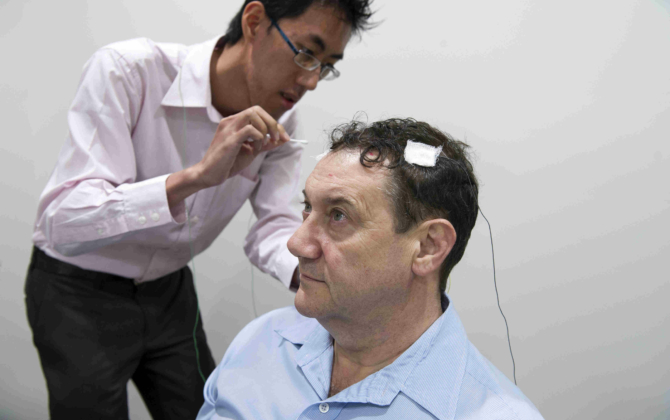Jump to
Obstructive sleep apnea (OSA) is a sleep disorder resulting in repetitive transient collapse of the upper airway with associated hypoxia and sleep fragmentation. Sufferers experience excessive daytime sleepiness and loss of vigilance and attention which can result in impaired daytime performance. It is challenging to manage the problem because not all OSA patients exhibit impaired alertness. This study aims to investigate the relationship between brain biomarkers measured at baseline, with neurobehavioural dysfunction during a subsequent extended wakefulness “load” that will uncover the individual variation in neurobehavioral dysfunction in patients with OSA.

